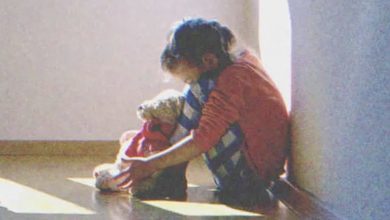Neighbor Acts Like She’s Our Boss—I Finally Put Her in Her Place

My name is Gavin, and I share a modest two-bedroom apartment on the second floor with my wife, Becca, and our two energetic children: seven-year-old Liam, who can’t stop talking about dinosaurs, and five-year-old Ava, whose favorite color is anything that sparkles. If it weren’t for one overly demanding neighbor, our life here in this mostly peaceful building would be about as close to perfect as I can imagine. But then there’s Marge.
Marge lives in Unit 3B. To her, the building is her personal kingdom, and the rest of us are de facto employees she can boss around whenever she likes. I could fill pages with her ridiculous demands—sticky notes warning us about noise levels at odd hours, letters demanding we rearrange our furniture so she won’t be inconvenienced, actual complaints filed with the homeowners’ association for crimes like “child playing music too loudly on a Tuesday afternoon.” We’ve tried being polite, ignoring her notes, even pleading with her, but nothing changes: Marge simply feels entitled to dictate how every one of her neighbors must behave.
It all came to a head one afternoon not long ago. Becca and I had just let Ava loose to press the elevator button in the hallway so Becca could collect a load of laundry. While she was gone, Ava tripped over one of Marge’s perpetually parked plant stands. She scraped her knee, burst into tears, and Becca—trying not to make a fuss—mentioned it casually to Marge the next time she ran into her in the hallway.
“Your granddaughter fell on your pots,” Becca said quietly, pointing to the leaning plant stand. “Do you think you could move those to the other side of the hall, so no one trips again?”
Marge looked at Becca as though she’d suggested rearranging the Great Pyramid of Giza. “Maybe your kid needs to watch where she’s going,” she snapped, refusing to budge. She never even hesitated.
That was our first real pushback. Then, a week later, a letter landed in our mailbox. Marge had filed an HOA complaint because Liam had been riding his scooter in the parking area on a Saturday morning. “Someone could get hurt,” she wrote. “And frankly, my time is too valuable to wait for your kid to finish his little game.”
Saturday’s joy had turned into a dull ache. Our boy loved zooming around on that scooter, and it didn’t hurt anyone. But to Marge, it was unacceptable.
Strike three came when she pounded on our door at 7:12 p.m. on a Tuesday and demanded we stop our washing machine. “I can hear it through the walls,” she said, glaring at Becca as if the spinning drum inside our flat was personally insulting her. Laundry—a basic necessity—had become our enemy.
Somewhere between strikes two and three, I realized: this had to end. We couldn’t keep shrinking or tiptoeing around her whims. So I decided that our next encounter would not be met with polite apologies. Instead, I would set a firm, undeniable boundary.
I chose the perfect moment to make my stand: a Saturday afternoon at the mall. We’d promised the kids a back-to-school outing in exchange for good behavior: no tantrums in the shoe store, no whining in the changing rooms. We even threw in a promise of soda and pretzels afterward. Naturally, the day was exhausting but still felt worth it when we finally piled into the car, bags in hand.
I loaded the trunk while Becca secured Ava’s seatbelt and Liam jabbered on about whether a T. Rex could ever survive in the confines of a minivan. Then it happened: a sharp horn blast right behind us. I glanced over and saw Marge’s silver sedan creep up so close that her bumper nearly touched ours. She was leaning out the window, blinker on, tapping her steering wheel as if daring me to mess up her perfectly timed parking.
I locked eyes with her as I clicked the trunk closed, then pressed the button on my key fob that bolted our doors. Becca looked at me, half puzzled, half amused, as I calmly turned and whispered, “We’re going back inside.”
Her eyes lit up with a mix of shock and laughter. “You’re serious?”
“Absolutely.” I smiled at my kids. “Who’s hungry for pizza?”
Marge’s horn sounded again—a long, furious honk—before she realized I wasn’t budging. With that, Becca scooped Ava out of her seat and Liam hopped out beside her. Hand in hand, we marched back into the mall, leaving Marge stuck in her sedan, inches from our bumper, sputtering curses.
Inside the food court, we found a corner table under a bright sign for Sizzling Pepperoni Pizza. I ordered a large cheese pie—nothing fancy, just gooey, greasy perfection—and Becca bought sodas for the kids. As the first slice arrived, my shoulders relaxed for the first time in weeks. The kids dove in, faces piled high with cheese, and I shared a look with Becca that said, We did it.
That evening, when we returned home, I half-expected a fresh note from Marge on our door: a passive-aggressive Post-it declaring us the local scourge. But there was nothing. I let myself believe that setting this simple boundary had thrown her off balance enough to keep her quiet—at least for a while.
And it worked. For the next week, there was no banging on our door, no complaints about laundry noise, no HOA letters. In fact, the hallway by our apartment actually felt peaceful. Our rolling laundry cart stands where it belongs, and the crutch of that frightening “private hallway” feeling lifted.
Then, two weeks later, I had just stepped out to grab my tools from the car when I caught sight of Marge, clutching a crumpled brown paper bag, its bottom stained with grease, standing by the lobby entrance. The aroma of curry and spices drifted through the air. Indian takeaway—her favorite, I figured.
I walked up to her, lunchbox in one hand, and said simply, “Evening.”
Marge looked surprised, then let that tight expression soften. For the first time, I saw a glimpse of vulnerability in her eyes. “You know,” she said quietly, “I’ve been thinking about what happened at the mall.”
My heart beat faster, but I stayed calm. “Oh?”
She shifted the greasy bag from one hand to the other. “You were right,” she admitted. “I was mean. I made your children feel small. That was wrong.”
I nodded, surprised by the sincerity in her voice. “Thank you for saying that.”
She gave a small, tired smile and took a deep breath. “It’s… lonely, ordering my dinner for one.”
Before I could respond, the elevator doors closed and whisked her away. I stood there for a moment, alone with my lunchbox and a new understanding. That day of petty revenge—forcing her to wait—had cracked something open. I felt a mix of victory and sadness, realizing how many lonely nights must have led her to behave the way she did.
Walking back upstairs, I decided that maybe it was time to return the kindness she’d shown us. That weekend, I baked a batch of chocolate chip cookies and left them on her doorstep with a note: “Thanks for your apology. We’re all learning. Feel free to join us anytime.”
I never expected Marge to answer the door, but to my surprise she did—smiling, frail but genuine—and she invited us in for tea. We sat around her small kitchen table, our apartment keys laid aside, and for a little while, I think we both realized that kindness, even when wrapped in a bit of pettiness, can open doors we never knew were locked.
Sometimes, standing up for yourself is the best way to show compassion. Because everyone—no matter how entitled—can use a reminder that human connection matters more than perfect boundaries. And setting a firm line in the sand can be the first step in building a bridge.
Have you ever stood up for yourself in a petty moment—only to discover it led to something unexpectedly kind? Share your story below!










